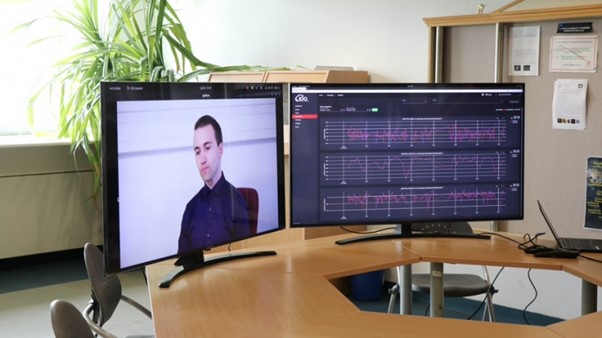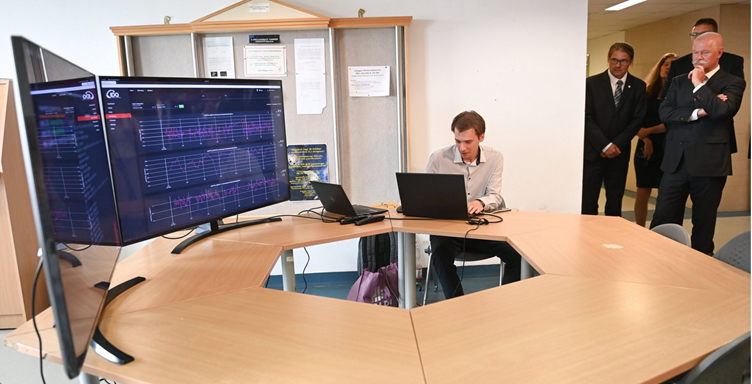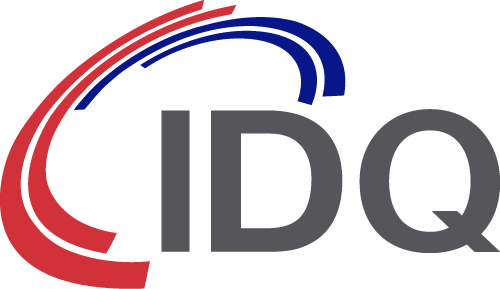ELTE demonstrates quantum-encrypted communications
In July 2022, researchers at the Faculty of Informatics at Eötvös Loránd University (ELTE) in Budapest, created a quantum encrypted video connection between its two campuses.
The practical demonstration of quantum-encrypted communications took place in the presence of János Csák, Minister of Culture and Innovation, and was part of a wider initiative where experts from across Hungary are exploring real-world applications of quantum technologies.

Quantum technologies have matured rapidly in recent years. Computing, communications, security and sensing applications have evolved beyond the theoretical and into practical applications. Quantum resources are being made available from the cloud, providing unprecedented levels of computational power. At the same time, fundamental elements of quantum mechanics are being harnessed to enhance cybersecurity capabilities.
Encryption is part of everyday life. It secures global financial transactions, mobile phone communications and access to the Internet. IT infrastructure is vulnerable to data loss or theft. Encryption prevents unauthorized users from exploiting sensitive or confidential data by rendering it unintelligible.
The security of today’s encryption protocols is based on mathematical complexity. However, this perceived security has come into question recently, with the development of quantum computers. For classical computers, the mathematics involved in cracking public key cryptography is incredibly difficult, so much so that it would take hundreds of years to solve the problem. However, quantum computers are different. They are very good at the sort of calculations required to crack today’s cryptography and could complete the same task in a matter of hours.
Quantum Cryptography
Quantum Key Distribution (QKD) is a cybersecurity application of quantum mechanics that secures the distribution of symmetric encryption keys and can be used to guarantee the forward secrecy of key exchange. One of the principles of quantum physics stipulates that observation of a quantum state causes perturbation. In practice, this means any attempt by an unauthorized user to intercept or eavesdrop on a communication will result in transmission errors that can be detected by legitimate users. QKD is a relatively mature quantum application and has been successfully commercialized by companies like ID Quantique.
For the purposes of their demonstration, researchers at ELTE used a Cerberis XGR to create a one-way, quantum-encrypted communication video across a traditional, 5km long, optical fibre network. The Cerberis XGR is part of ID Quantique’s fourth generation QKD portfolio and was used to secure a connection between the University’s Lágymányosi and Trefort Garden campuses. The successful demonstration is a precursor to the development of a secure quantum communications infrastructure across the country.

Hungary Joins EuroQCI
Hungary joined the European Quantum Communication Infrastructure (EuroQCI) initiative, launched by the European Union in 2019. EuroQCI aims to create the first secure quantum communications networks across Europe. The goal of the QCI Hungary consortium, which won the related tender, is to build a national quantum communication infrastructure. The consortium comprises the Government Information Technology Development Agency (KIFÜ), the Wigner Research Centre for Physics, the Faculty of Informatics of Eötvös Loránd University (ELTE), the Faculty of Electrical Engineering and Informatics of the Budapest University of Technology and Economics (BME), as well as Magyar Telekom and Vodafone as partners.
Within the framework of the project, other encrypted connections will be established between Budapest and several Hungarian cities. Within Budapest, two data centers handling sensitive data will use QKD to secure data links.
János Csák congratulated the research team on their achievements to date and pointed out that it is the government’s responsibility to make the country future-proof, to ensure the security and integrity of tomorrow’s communications.
Tamás Kozsik, Head of the research group at the Faculty of Informatics at ELTE, said some of the current encryption methods protecting our data may soon become obsolete. The arrival of the quantum computer will render today’s cybersecurity ineffective. The development and deployment of quantum resistant encryption technologies is vital if we are to secure critical infrastructure, such as the world’s financial and economic networks.
Original article:




